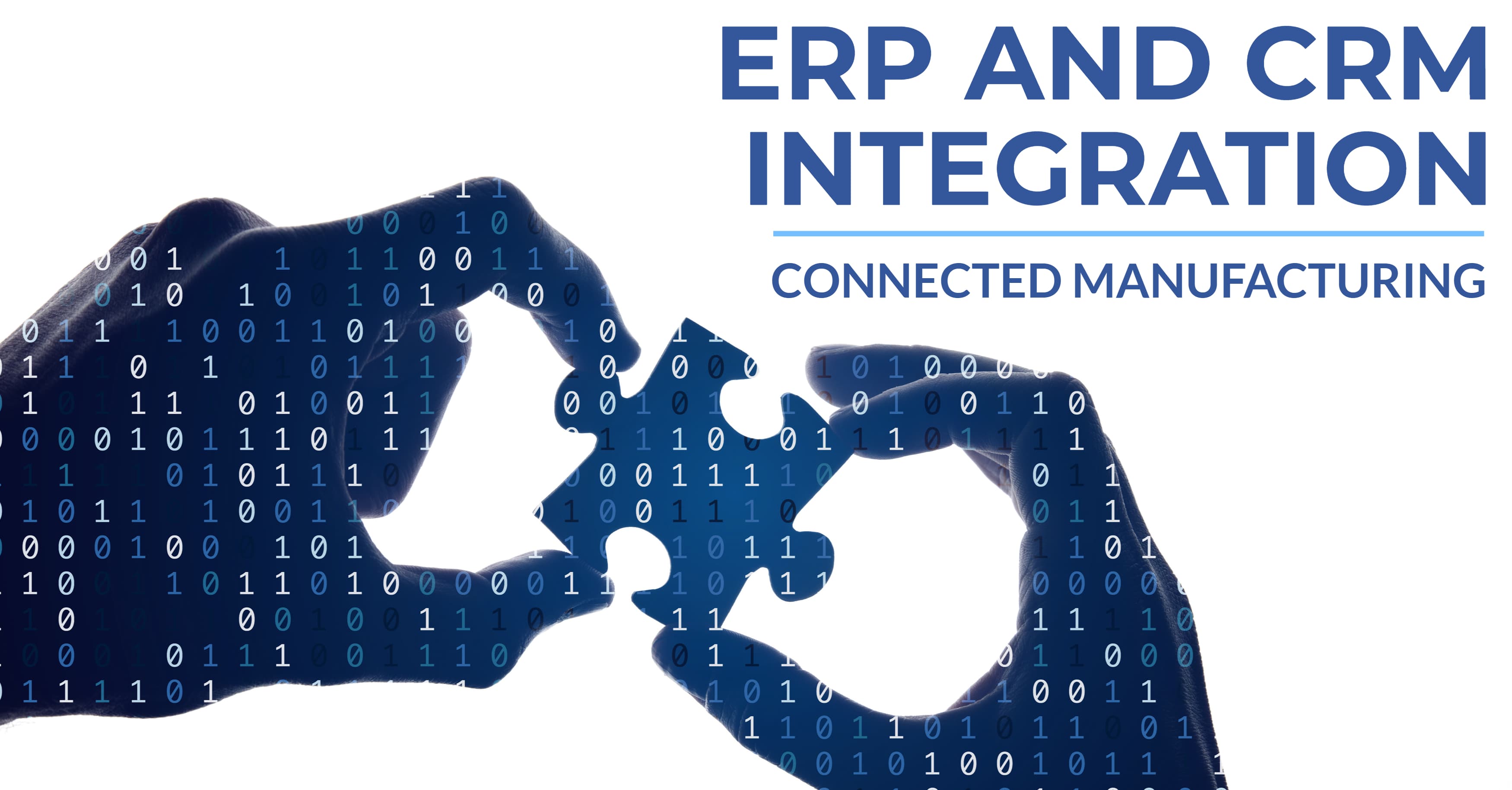A Single Source of Truth to Unite Your Enterprise
In a recent post about using ERP software to support connected manufacturing, we mentioned the advantages of investing in a comprehensive ERP solution. Epicor is a leading software vendor that designed its platforms to include a diverse range of modules, such as Supply Chain Management, Advanced MES and Product Lifecycle Management. With all these features wrapped up in one package, manufacturers can streamline processes and enjoy top-to-bottom visibility without attempting to connect a large variety of separate applications.
However, in the pursuit of connected manufacturing, business leaders often leave out one thing: The customers. Sales processes and front-office strategies are often relegated to the sidelines as manufacturers focus on fine-tuning production lines. But you can’t truly become a connected enterprise if your front and back offices and shop floor are all working separately.
Since most ERP vendors don’t include CRM offerings with the level of sophistication required to fully manage customer relationships, the best course of action is to integrate best-of-breed ERP and CRM software. Modern integration solutions make this process fast and cost-effective. Below, we go over some use cases that demonstrate how ERP and CRM integration can give you a single source of truth to unite your enterprise.
ERP and CRM Integration Use Cases
Less Manual Data Entry
Too many businesses require swivel-chair data entry with users spending inordinate amounts of time keying information into multiple applications. This tedious process results in errors and prevents employees from gaining a real-time view of data. With an integration, anything that goes into one platform is reflected in the other. Having automatically transferred and updated data on hand at all times boosts your enterprise efficiency.
One User, One System
Automatic integration also means that each user only needs to rely on a single solution. Sales reps no longer need to dig into an ERP platform—potentially messing up fields and workflows—to find information to close a deal. Everyone has the right data at their fingertips to perform operations.
Complete Visibility
ERP and CRM integration provides the detailed visibility necessary for executives and managers to make strategic decisions. The CFO can optimize cost reporting and fully track estimated budgets and actual expenses from the top floor to the shop floor. The CEO can access critical metrics to determine the lifetime value (LTV) of a customer and identify methods to increase net promoter scores (NPS) and lower customer attrition. Shop floor managers can utilize CRM forecasting tools to optimize demand planning and keep production lines running smoothly. This level of insight helps manufacturers detect waste, issues and opportunities to pursue continuous improvement.
Customer-Centric Operations
Both software platforms harbor contact and account information, but CRM tends to include prospect and sales data, while ERP focuses on billing and shipping addresses. When you unite these two solutions, you gain a complete picture of every customer. This allows you to create a customer-centric enterprise. Product designers can optimize goods based on customer metrics and feedback. Sales, marketing and services teams can personalize customer engagements using back-office information.
Fast Service
Customers want answers fast, but sales reps can’t make this happen if they don’t have the right information. An integration gives them back-office data to respond in an instant to customer requests. Need inventory status or pricing? An integration will populate this information in your dashboards. A customer wants to know if an order is delayed? Our Unity integration solution includes a visual order tracker that makes it easy to view the status of an order. Having a central hub for information enables you to quickly satisfy customers.
Process Automation
With data seamlessly moving throughout your enterprise, you can develop streamlined workflows. For example, a sales quote in your CRM system can instantly flow into your ERP solution to generate a sales order and start making and distributing the product. By automatically triggering business processes, integration ensures precision throughout the supply chain and speeds up production cycles.
Wrap Up
Connected manufacturing is achieved through maintaining a shared focus on the customer. Together, your ERP and CRM software can help you provide tailored customer experiences from beginning to end and make your processes more efficient and accurate than ever.
Nothing is better at uniting your enterprise than Unity. Crafted by the certified developers at Datix, Unity is a premier integration application designed to seamlessly connect Epicor ERP with your CRM, Marketing Automation or eCommerce software. Unlike any other integration solution, Unity is fully managed by our expert consultants, so you don’t have to worry about complex upkeep or error handling. Fully scalable, Unity won’t get in the way of your enterprise growth as you add on new platforms or upgrade your software. Additionally, the pre-built application is installed rapidly by our experts. We’ll also take care of any customizations to ensure the system aligns with your specific needs.
No coding, no hassle, no errors—Unity is simply the best solution out there to integrate your software and help you become a connected manufacturer. Learn more about Unity by reaching out to Datix today!
{{cta(‘770c1544-d87d-4acb-9fc4-7a25e1385094′,’justifycenter’)}}



